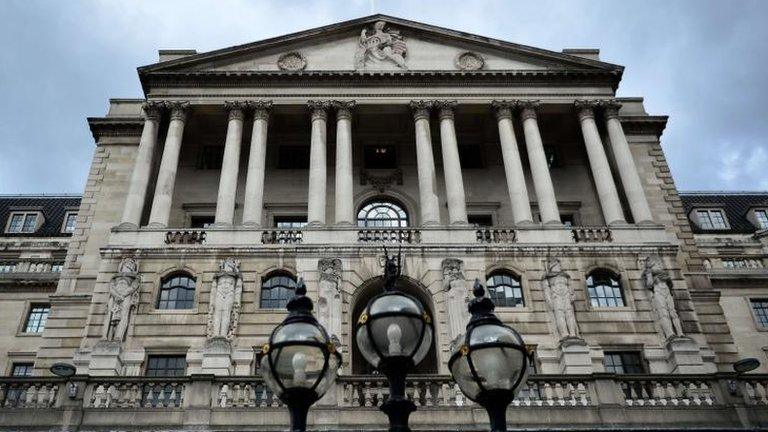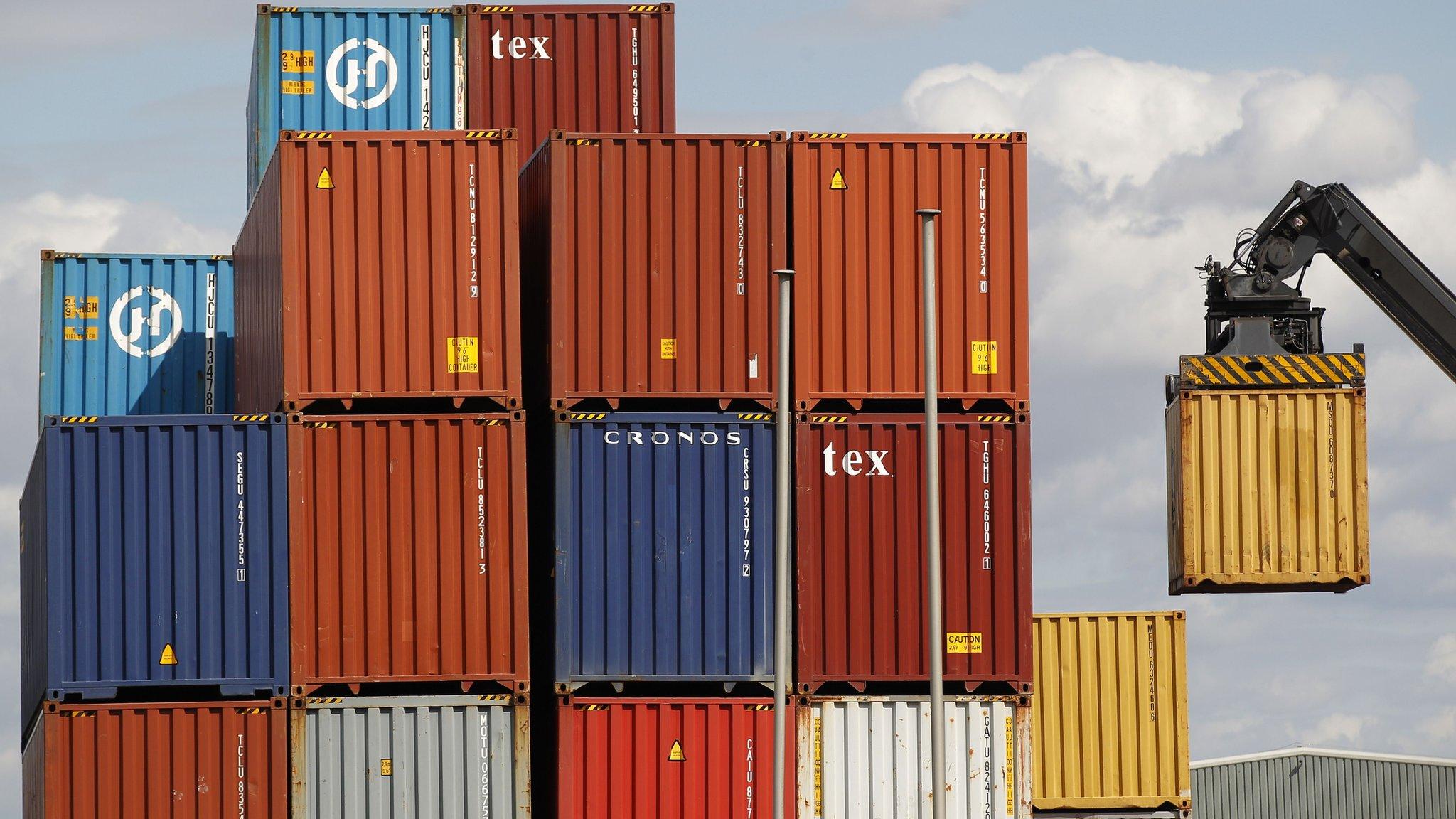IMF: UK's economic performance 'very strong', but risks remain
- Published
Christine Lagarde: "The housing sector is a perennial potential risk"
The UK's recent growth, employment progress and deficit reduction have been "strong", the International Monetary Fund (IMF) has said.
Underlying economic vulnerabilities have been addressed, and steady growth looks set to continue, it said.
But high household debt, a "strikingly large" trade deficit and high government debt are still risks to the economy.
It also warned about uncertainty over whether the UK would stay in the EU.
"Trade would be harder, tariffs would be higher, [and] the financial fluidity within the European Union would not be as good as it is at the moment, [should the UK leave the EU]," the IMF's Christine Lagarde told BBC business editor Kamal Ahmed.
She said the IMF was in favour of opening up trade, removing barriers, and the mobility of goods, capital and people.
"[The EU] has proven effective over the years," she said.

Analysis
BBC business editor Kamal Ahmed
Christine Lagarde, the managing director of the IMF, is not a politician. And makes it clear that decisions on "specific projects" are a matter for others, engineers for one.
But even she found it almost impossible not to add her voice to those expressing frustration at the government's decision last night not to give the go-ahead to a new runway at either Heathrow or Gatwick.
Mme Lagarde was in London for the publication of the IMF's latest assessment of the UK economy.

'Strong' economy
She gave an upbeat assessment of the UK economy, saying that the UK was in a strong position at the moment.
"Life is about risk, but what we are seeing is a very strong performance from the British economy," she said.
Growth has outstripped other major economies, the unemployment rate has fallen, employment is at a high, the fiscal deficit has been reduced, and financial sector resilience has increased, the IMF said in a report.
Steady growth looks likely to continue over the next few years, and inflation should gradually return to its 2% target, the IMF said.
But although UK house price growth has eased, the household debt-to-income ratio is still high, and could leave some households vulnerable to shock interest rate rises.
The large trade deficit could affect cash flows into the UK, adversely affecting growth, the report says.
In addition, high government debt, and a continuing deficit, could tie the government's hands in dealing with any future recession, and productivity growth might fail to materialise.
Chancellor George Osborne said the IMF report "could hardly be more positive" about the UK economy, but that it "rightly" identified challenges.
He said the government had taken steps to address UK productivity, the housing market and deficit reduction.
- Published10 December 2015

- Published10 December 2015

- Published9 December 2015
